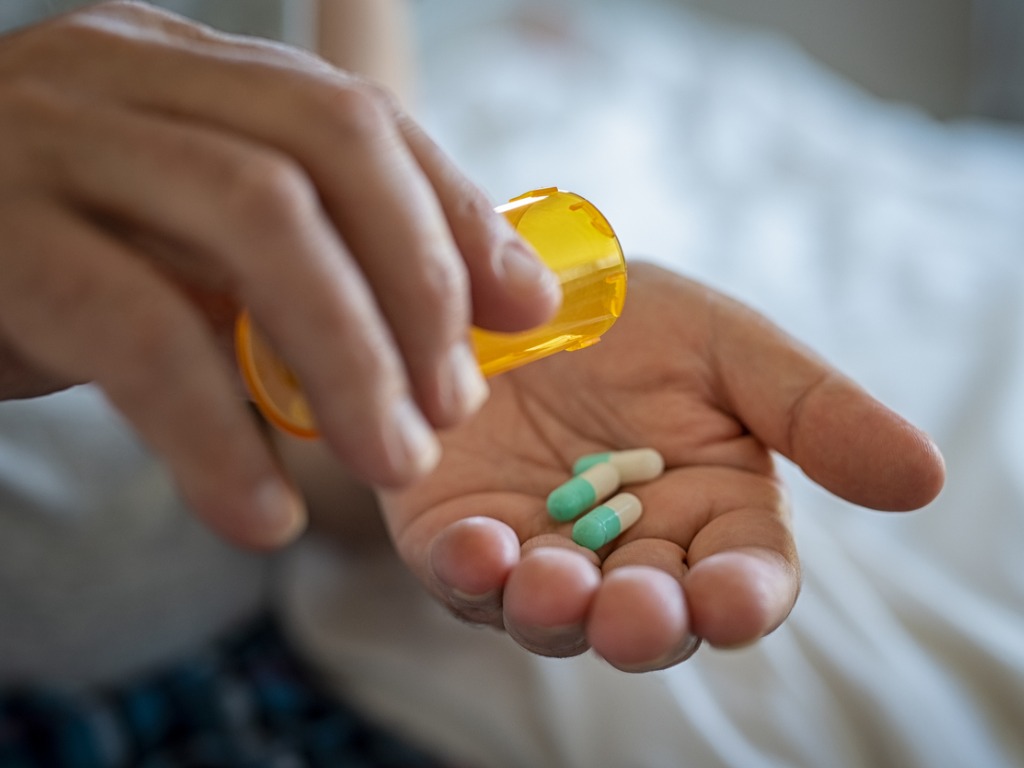Fluvoxamine as COVID-19 Treatment?

The Bottom Line
Fluvoxamine is a medication that has been used to treat obsessive compulsive disorder and depression. Recent clinical trials have shown that it may be effective for preventing hospitalizations and complications of COVID-19 infection, but it is not quite ready for prime time.

The Full Story
Fluvoxamine (Luvox®) was first approved by the US Food and Drug Administration in 1994; however, it had been used in other countries since the early 1980s. It belongs to a class of drugs called selective serotonin reuptake inhibitors (SSRIs), which also includes the drug fluoxetine (Prozac®). It is most commonly used for psychiatric conditions, such as depression, obsessive compulsive disorder, and post-traumatic stress disorder. It has not been used to treat infections in humans in the past.
Fluvoxamine was, however, noted to bind to a receptor in cells of the immune system that are important in causing inflammatory responses. COVID-19 can cause an out-of-control inflammatory reaction. By preventing such a severe inflammatory reaction, fluvoxamine may help prevent hospitalization in people with COVID-19.
A large trial in Brazil compared fluvoxamine to placebo (sugar pill) in a group of adults with mild COVID-19 who had risk factors for severe disease. Patients were either given fluvoxamine or a placebo twice daily for 10 days. The researchers found that patients who received fluvoxamine were less likely to be hospitalized for COVID-19 compared to those who got placebo (11% vs 16%). There were no differences in side effects reported between the fluvoxamine and placebo groups. Other smaller trials using different dosing regimens found similar results.
While these studies are encouraging, the use of fluvoxamine as a treatment for COVID-19 remains experimental, and we need more information about how to add fluvoxamine to current treatment guidelines. For example, we need to know when to start the medication, the optimal dose, how long to treat, whether it should be combined with existing COVID-19 therapies, and if it can be used to treat more severe forms of COVID-19. Currently, there is no information to suggest that fluvoxamine is effective in preventing COVID-19 infection. Information about fluvoxamine use is even more limited in pediatric patients.
Overall, fluvoxamine was well tolerated in clinical trials, but there were adverse effects reported. These included stomach upset, diarrhea, insomnia, and drowsiness. Rarely suicidal thoughts have been reported with fluvoxamine use. Fluvoxamine also affects how other drugs are broken down by the body, leading to drug-drug interactions. This can cause bleeding complications in patients on blood thinning medications, and a severe complication called serotonin syndrome if used with certain other psychiatric medications. Fluvoxamine can also cause abnormal heart rhythms when combined with certain medications.
Do not take fluvoxamine to treat or prevent COVID-19 unless you are enrolled in a clinical trial or under the care of an experienced physician. If you suspect someone has taken fluvoxamine inappropriately or is having an adverse effect to the medication, do not make the person vomit. Go to webPOISONCONTROL for help online or call 1-800-222-1222. Both options are free for the public, and available 24 hours a day.
Maryann Amirshahi, PharmD, MD, MPH, PhD
Medical Toxicologist
Poisoned?
Call 1-800-222-1222 or
Prevention Tips
- Seek testing/medical care if you suspect you have COVID-19. Do not self-diagnose or treat.
- Do not take fluvoxamine for the prevention or treatment of COVID-19, unless you are participating in a clinical trial or under the supervision of a doctor.
- Never take other people’s prescription medication.
- Do not buy fluvoxamine from anywhere other than a licensed pharmacy.
- COVID-19 is best prevented through vaccination. Make sure you are fully vaccinated! Urge your friends and family to get vaccinated, too. Masks and social distancing are also helpful supplemental prevention measures, but no substitute for vaccination.
This Really Happened
A 16-year-old took a handful of his father’s fluvoxamine in a self harm attempt. He developed vomiting and shaking and his heart rate was elevated. His pupils were dilated and his eyes were moving back and forth (nystagmus). He started having hallucinations and was very confused. He was given medications to help calm him down and fluids and he made a complete recovery after 24 hours in the hospital.References
Poisoned?
Call 1-800-222-1222 or
Prevention Tips
- Seek testing/medical care if you suspect you have COVID-19. Do not self-diagnose or treat.
- Do not take fluvoxamine for the prevention or treatment of COVID-19, unless you are participating in a clinical trial or under the supervision of a doctor.
- Never take other people’s prescription medication.
- Do not buy fluvoxamine from anywhere other than a licensed pharmacy.
- COVID-19 is best prevented through vaccination. Make sure you are fully vaccinated! Urge your friends and family to get vaccinated, too. Masks and social distancing are also helpful supplemental prevention measures, but no substitute for vaccination.
